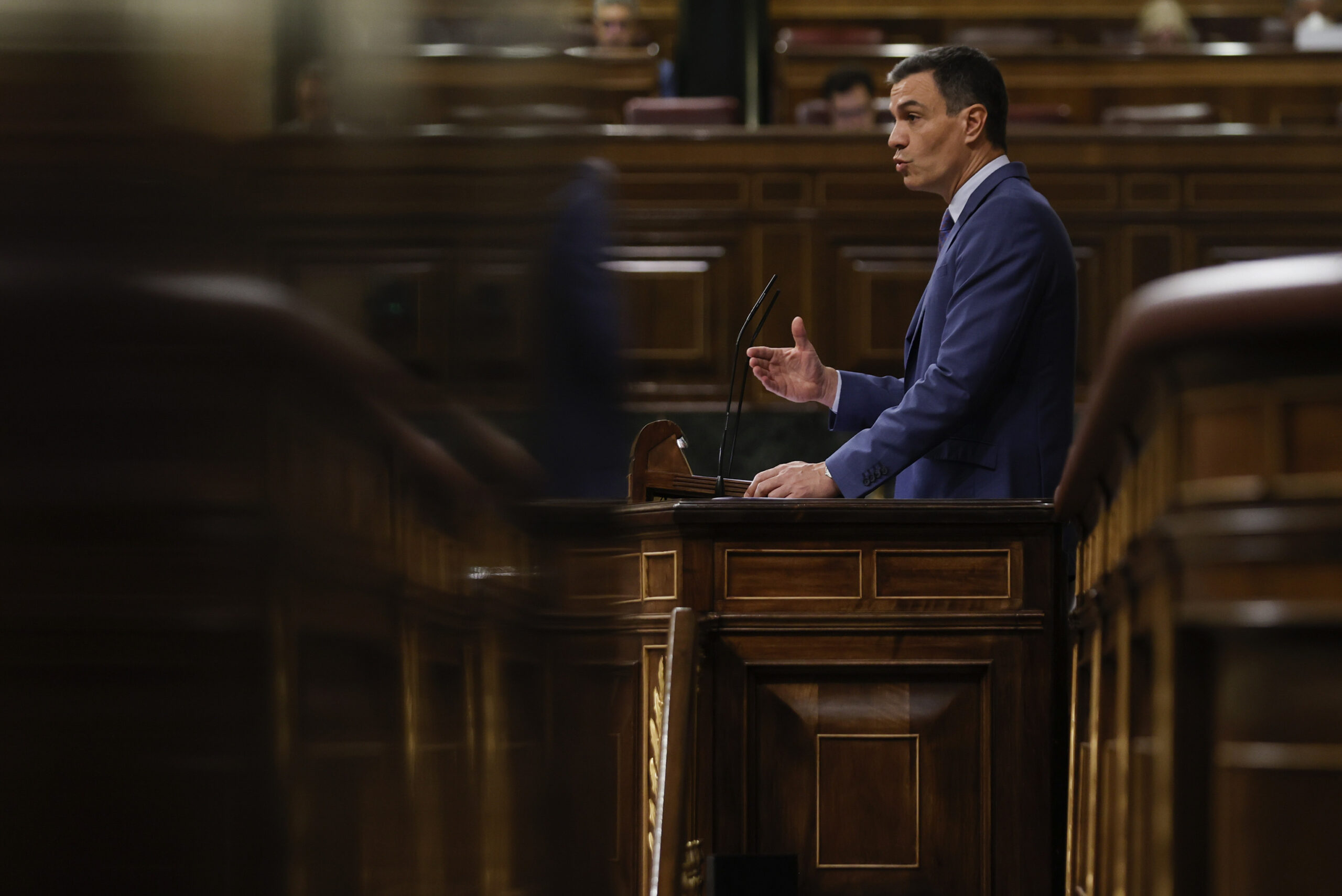Three months after Morocco announced by surprise the radical change of the Spanish Government in relation to Western Sahara and Congress flatly rejected the decision adopted alone by Pedro Sánchez, the president has forced himself to the Chamber to account for the step that had given. And he has done so by mixing his explanations with those referring to the latest decisions adopted by the European Council in relation to Russia and the war in Ukraine, decisions that involve NATO, foresee more arms being sent to kyiv and do not have the support of the minority partners of the Executive.
The debate in the Chamber has been revealed as a test of the bulk of Spanish foreign policy, a policy that, for the preferred partners of the Government, surrenders to warmongering and militarism and will be exposed at the next summit of the Atlantic Alliance to be held in Madrid at the end of the month. And for the opposition it is nothing more than an example of Sánchez’s unilateralism and the failure of his management.
With all the parliamentary groups against it, with the exception of the PSOE, the President of the Government has reaffirmed his lurch by insisting that the autonomy plan for Western Sahara proposed by Mohamed VI is the “most serious and realistic” solution for the future of the former Spanish colony and, furthermore, opens a way to guarantee a “promising future” for Ceuta and Melilla. In this field, he has also announced the beginning of an upcoming negotiation in order to achieve a new Spanish-Moroccan bilateral agreement to replace the Treaty of Friendship, Good Neighborhood and Cooperation of 1991.
Sánchez has defended his turn affirming that other European countries have accepted Morocco’s proposal and has cited France, Germany, the US, the Netherlands and the European Commission itself. An approach that is not entirely true because, except for France, the rest of those mentioned, as the UN has done in its successive resolutions since 2007, take note of the Moroccan proposal, appreciate it and consider it realistic but do not distinguish it as the preferred one to resolve the conflict in a territory undergoing a decolonization process. In fact, the United Nations in all its resolutions continues to maintain that the solution for the Sahara must “provide for the free self-determination” of its people.
His explanations in neither of the two areas have convinced the opposition. The PP has emphasized the deep discrepancies that exist within the Government regarding the strategy to follow in relation to the war in Ukraine, the sending of offensive material to the resistance, the forecast of increasing defense spending and the celebration of the NATO Summit at the end of the month in Madrid. “Your government is a continuous ambush, nonsense”, the PP spokesperson, Cuca Gamarra, has snapped at him, emphasizing the multiple gaps that the Council of Ministers exhibits in this field and recalling that the lurch regarding the Sahara does not have the endorsement congressional.
Gamarra also recalled that there is still no response from the European Commission to the Spanish and Portuguese proposal to cap the price of gas in order to lower the cost of electricity and it has been two months since the Executive announced its imminent entry into force. “A scam,” stressed the spokeswoman.
Nor has he defended the position of the president, the spokesman for United We Can, Pablo Echenique. The purples are the ones who most virulently oppose both the change in policy regarding the Sahara and Spain’s close ties with NATO, an organization that they brand as “warmonger” and subject to US interests. For Podemos, the budget promised for defense and weapons should be used for social objectives for the direct benefit of citizens.
Echenique has taken advantage of his speech to demand from Sánchez a review of the measures to deal with the economic crisis. The UP spokesman has asked that the new decree in which they are collected be extended at least until the end of the year, include a 15% increase in non-contributory pensions and contemplate a social bonus for transport of 10 euros.
ERC, an investiture partner but increasingly distant from the Executive, has warned Sánchez through his spokesman, Gabriel Rufián, that “you cannot be a Republican and defend the monarchy, or a socialist and be on the side of the CEOE, or pacifist and bet on NATO”.
Ciudadanos has reproached the president for having chosen partners “located on the wrong side of history.” Its spokesperson, Inés Arrimadas, has wondered how it is possible to organize a summit as important as NATO’s “with half the government boycotting it and describing the Alliance as a criminal organization”. She has also accused Sánchez of “compromising” Spain’s position in relation to the Sahara without having the approval of the representatives of national sovereignty.
The PNV has presented the change in policy regarding the Sahara as the result of blackmail by Morocco. It has been its spokesman, Aitor Esteban, who has directly related this issue to espionage with the Pegasus program on the cell phone of the Prime Minister and the Ministers of Defense and Interior. In his opinion it is evident that the authorship of the hacking is attributable to Rabat. Basque nationalists have accused Sánchez of “abandoning neutrality and leaving the Saharawis to their fate.” They, the PNV has said, “are the pagans.” Esteban has also accused the PP of being in the background in agreement with the president in this area.
Conforms to The Trust Project criteria
















